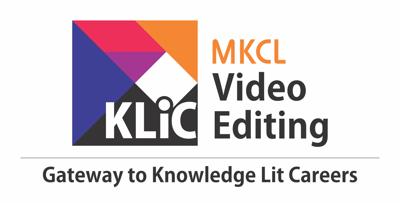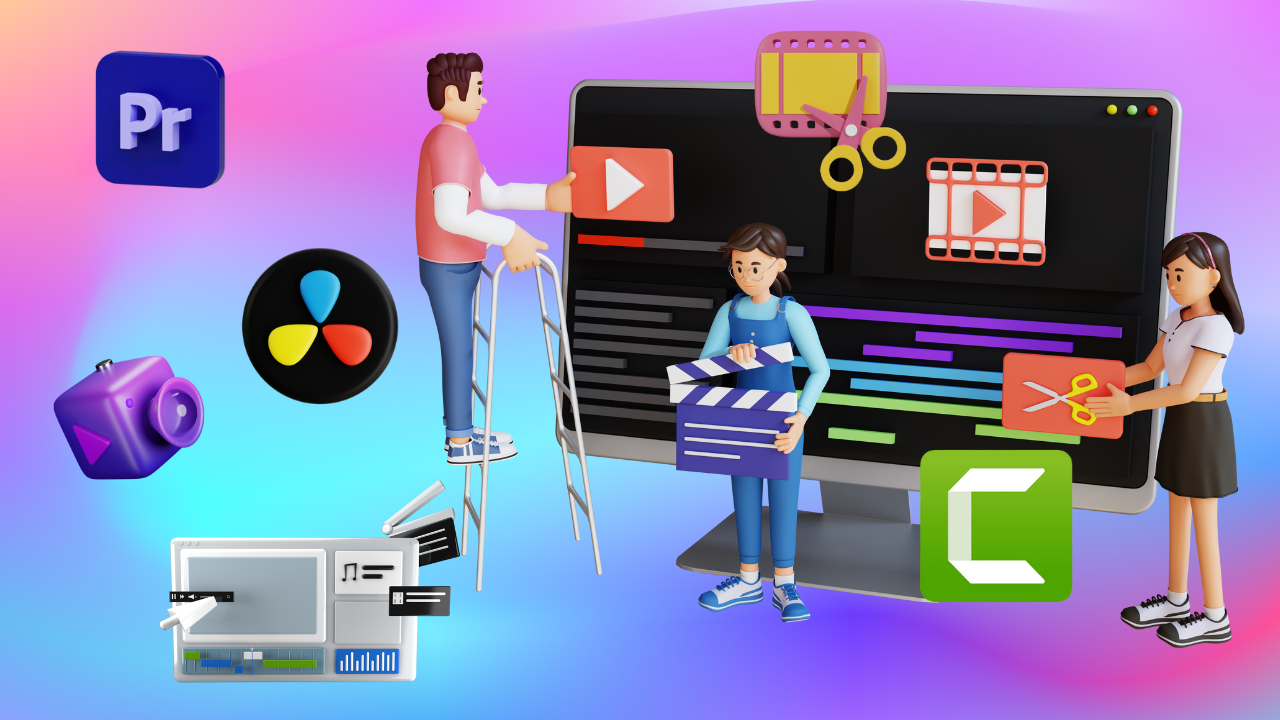- In this course, you will be able to:
- Explain the concept of video optimization and its impact on the viewing experience
- Compare different video codecs and formats to identify the balance between quality and file size
- Create engaging thumbnails and categorize the importance of metadata for video discoverability
- Apply SEO strategies, utilizing keywords and descriptions to enhance video visibility.
- Assess the effectiveness of using various social media platforms for video promotion and audience engagement
- Summarize the methods and considerations of video monetization, focusing on copyright and licensing
- Identify how Content ID works and its role in managing copyright for online videos
- Develop an online presence strategy that ensures consistency and effectiveness across platforms
- Explore various career opportunities in video editing, reflecting on industry demand and personal interest
- Organize a professional portfolio that effectively showcases one's strengths and style in video editing
- Summarize foster collaborations and understand its impact on career progression
- Examine continuous learning to enhance skills and stay current with video editing trends and technologies

Video Editing - Project Management and Collaboration with Career Aspects
Understand the full workflow from planning to collaboration while exploring career opportunities in video editing.
KLiC Certificate in Video Editing - Project Management and Collaboration with Career Aspects
Introduction
What you'll learn ?
- At the end of this course, learners will be able to:
- Interpret the principles of video optimization to enhance user engagement and viewing experience
- Assess and compare different video codecs and formats to determine the optimal choice for various contexts
- Create effective thumbnails and utilize metadata strategically to maximize video discoverability.
- Apply SEO techniques and evaluate their impact on improving video visibility and audience reach
- Analyze the use of social media for video promotion, distinguishing between platforms to optimize engagement strategies
- Summarize monetization methodologies, understanding the interplay between copyright, licensing, and revenue generation
- Diagnose issues and develop strategies related to Content ID and copyright claims ensuring compliance and fair use
- Construct a coherent and consistent online presence demonstrating its impact on personal or brand recognition
- Examine various video editing career paths making informed decisions based on market demands and personal goals
- Assemble a professional portfolio showcasing editing expertise and critique its effectiveness in demonstrating one's skills
- Build professional networks and evaluate the impact of collaboration on career advancement
- Interpret and utilize new trends and technologies to stay relevant in the field
Syllabus
- Adding Fusion Composition and Nodes
- Shape animation in DaVinci Resolve
- Using the Spline Editor in DaVinci Resolve
- Compositing and exporting the video
- Copyright and Intellectual Property Rights
- Obtaining Permissions for Content
- Discussing Real-world Ethical Scenarios
- Encouraging Ethical Practices
- Understanding Video Optimization
- Role in Enhancing Viewing Experience
- Practical Optimization Techniques
- Reflection on Optimization Impact
- Introduction to Codecs and Formats
- Balancing Quality and File Size
- Choosing Optimal Codecs
- Reflection on Choices Made
- Creating Custom Thumbnails
- Importance of Metadata
- Thumbnail and Metadata Exercise
- Reflection on Discoverability
- Introduction to Video SEO
- Keywords and Descriptions
- Application of Video SEO
- Reflection on SEO Efforts
- Social Media Platforms for Video
- Audience Engagement and Analytics
- Social Media Exercise
- Reflection on Social Media Impact
- Monetization Options
- Copyright and Licensing
- Implementing Monetization
- Reflection on Monetization Strategies
- Introduction to Content ID
- Role in Copyright Management
- Dealing with Copyright Claims
- Reflection on Fair Use
- Building an Online Presence
- Consistency Across Platforms
- Branding Exercise
- Reflection on Branding Impact
- Video Editing Careers
- Exploring Diverse Paths
- Career Consideration Exercise
- Reflection on Career Choices
- Importance of a Portfolio
- Showcasing Strengths and Style
- Portfolio Curation Exercise
- Reflection on Portfolio Effectiveness
- Importance of Networking
- Seeking Collaborations
- Networking Exercise
- Reflection on Networking Impact
- Role of Continuous Learning
- Skill Enhancement and Trends
- Learning Opportunities Exercise
- Reflection on Learning Impact
Certificate
- MKCL provides certificate (for 30/60/90 hours courses) to the KLiC learner after his/her successful course completion.
Academic Approach
The Academic Approach of the course focuses on the “work centric” education i.e. begin with work (and not from a book !), derive knowledge from work and apply that knowledge to make the work more wholesome, useful and delightful. The ultimate objective is to empower the Learner to engage in socially useful and productive work. It aims at leading the learner to his/her rewarding career as well as development of the society.
Learning methodology
- Learners are given an overview of the course and its connection to life and work.
- Learners are then exposed to the specific tool(s) used in the course through the various real-life applications of the tool(s).
- Learners are then acquainted with the careers and the hierarchy of roles they can perform at workplaces after attaining increasing levels of mastery over the tool(s).
- Learners are then acquainted with the architecture of the tool or Tool Map so as to appreciate various parts of the tool, their functions and their inter-relations.
- Learners are then exposed to simple application development methodology by using the tool at the beginner’s level
- Learners then perform the differential skills related to the use of the tool to improve the given ready-made outputs.
- Learners are then engaged in appreciation of real-life case studies developed by the experts.
- Learners are then encouraged to proceed from appreciation to imitation of the experts.
- After imitation experience, they are required to improve the expert’s outputs so that they proceed from mere imitation to emulation.
- Finally, they develop the integral skills involving optimal methods and best practices to produce useful outputs right from scratch, publish them in their ePortfolio and thereby proceed from emulation to self-expression.
Evaluation Pattern
Evaluation Pattern of KLiC Courses consists of 4 Sections as per below table:
| Section No. | Section Name | Total Marks | Minimum Passing Marks |
|---|---|---|---|
| 1 | Learning Progression | 25 | 10 |
| 2 | Internal Assessment | 25 | 10 |
| 3 | Final Online Examination | 50 | 20 |
| Total | 100 | 40 | |
| 4 | SUPWs (Socially Useful and Productive Work in form of Assignments) | 5 Assignments | 2 Assignments to be Completed & Uploaded |
MKCL’s KLiC Certificate will be provided to the learner who will satisfy the below criteria:
- Learners who have successfully completed above mentioned 3 Sections i.e. Section 1, Section 2 and Section 3
- Additionally, learner should have completed Section 4 (i.e. Section 4 will comprise of SUPWs i.e. Socially Useful and Productive Work in form of Assignments)
- Learner has to complete and upload minimum 2 out of 5 Assignments
Courses Fee Structure from 01 July, 2025 Onwards
KLiC 30 hour course fee applicable from 01 July, 2025 all over Maharashtra| KLiC Course Duration | MFO: MKCL Share (Including 18% GST) |
ALC Share (Service Charges to be collected by ALC) |
|---|---|---|
| 30 hours | Rs. 300/- | Rs. 1,500/- |
Important Points:
* Above mentioned fee is applicable for all Modes of KLiC Courses offered at Authorised Learning Center (ALC) and at Satellite Center
* Total fee is including of Course fees, Examination fees and Certification fees
* MKCL reserves the right to modify the Fee anytime without any prior notice
* Above mentioned fee is applicable for all Modes of KLiC Courses offered at Authorised Learning Center (ALC) and at Satellite Center
* Total fee is including of Course fees, Examination fees and Certification fees
* MKCL reserves the right to modify the Fee anytime without any prior notice
